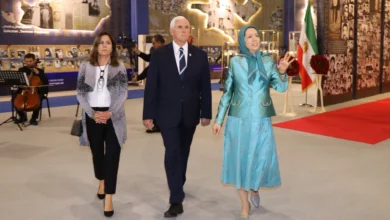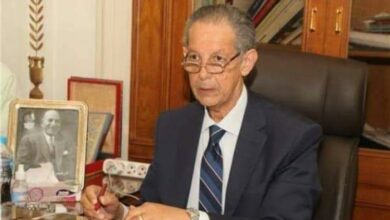Wafd Party president al-Sayed al-Badawy failed to give a final word on whether or not the party will boycott the upcoming parliamentary elections.
El-Badawy told a crowd of hundreds at a national conference held Sunday in the party’s decades-old headquarters in Dokki, that the Wafd Party will not accept an election process “without guarantees.”
He was asked by members of the crowd what would happen if the government refuses to budge and give the necessary guarantees.
“If this doesn’t happen, if they don’t respond to our demands, on 17 September I’ll call for a meeting of the general assembly of the Wafd and we will decide whether or not we will boycott the elections,” said al-Badawy to cheers from the crowd.
The conference’s main aim was to announce the guarantees and amendments to laws governing the electoral process that the Wafd Party wishes to see implemented prior to the upcoming elections in 2010 and 2011.
The Wafd Party's demands, read by member Ali al-Selmy, included divorcing the influence of the Justice Ministry from the Supreme Elections Committee, which is expected to oversee the upcoming elections and decide on matters of contention. An independent budget and a clear list of nominees for members of the committee, released in advance for inspection by the opposition, were on the top of these demands.
In addition, longer-term demands that others opposition figures have called for, like limiting the tenure of the president through amendment to the Constitution, and easing the conditions for presidential candidacy to allow for more independent politicians and leaders of smaller parties to compete–removing the infamous five per cent People’s Assembly members’ approval quota–were also laid on the table.
Appeals and complaints should be handled by the supreme committee, and not the vote counting committee, as the law currently states, said el-Selmy. He also called for abolishing the electoral list based on names, and suggested, on behalf of his party, that voters should register at polling station using social security numbers, and only social security identification cards should be accepted.
More importantly, the Wafd Party called for the presence of a presiding judge at every polling station. “As it stands, there’s no guarantees until now that full judicial election monitoring will happen. We’re not asking [the government] to assign a judge to every ballot box,” said al-Selmy. “We only need a judge to be present at every polling station."
At the same conference, where leaders’ speeches were cut off by anti-Mubarak shouts, al-Badawy confidently declared that “succession of power” from President Hosni Mubarak to his son, National Democratic Party bigwig Gamal, will not happen. “Egypt is so much bigger than to be passed on as heritage [from father to son]. Egypt is not a property or a piece of heritage,” al-Badawy told his supporters.
Egypt’s lower-house of parliament, the People’s Assembly, is scheduled for a reshuffle this October, and it is expected that the NDP will dominate the number of seats, after succeeding to elbow the Muslim Brotherhood out through a series of restrictions, and reportedly through rigging, which the Brotherhood and other parties foresee. Previously, the Brotherhood ran as independents taking 88 seats, while the Wafd Party only succeeded in clinching six seats, rendering their official political participation weak and ineffective.




